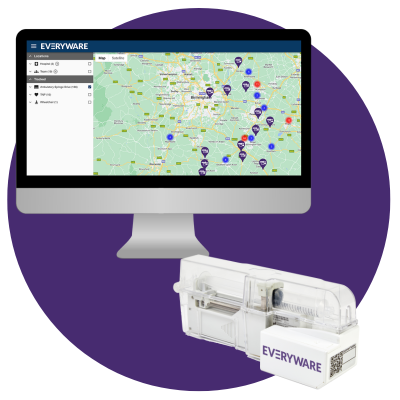GPS stands for Global Positioning System. It involves a network of satellites orbiting the Earth, helping determine locations or track various assets. Initially developed for military use in the 1960s, GPS became available to the public in 1983, and its uses have expanded over the years. Today, GPS is used for a variety of purposes, from guiding military exercises to assisting drivers with directions.
GPS tracking involves using a device installed in a vehicle, on an asset, or worn by a person. This device provides real-time information about its location and movements, allowing for accurate tracking.
For instance, hospitals use GPS tracking to monitor medical devices and transport critical specimens between locations. The EVERYWARE GPS trackers then feed this information back to an easy-to-navigate digital platform, which practitioners can use to locate healthcare assets in under two minutes.
The EVERYWARE GPS trackers are also WiFi enabled, which means they are able to use the WiFi to provide a location in situations where there isn’t any GPS signal.
GPS is most commonly used for tracking healthcare assets in the community as it can be used for assets that are any distance away from the hospital and an provides accurate, up-to-date location.
Some examples of healthcare assets commonly tracked using GPS include:

Share your details and a member of our team will be in touch to provide a quote and information about our free demo.
Email: info@everyware.co.uk
Head Office
Chandos Business Centre, 87A Warwick Street, Leamington Spa, Warwickshire, CV32 4RJ, United Kingdom